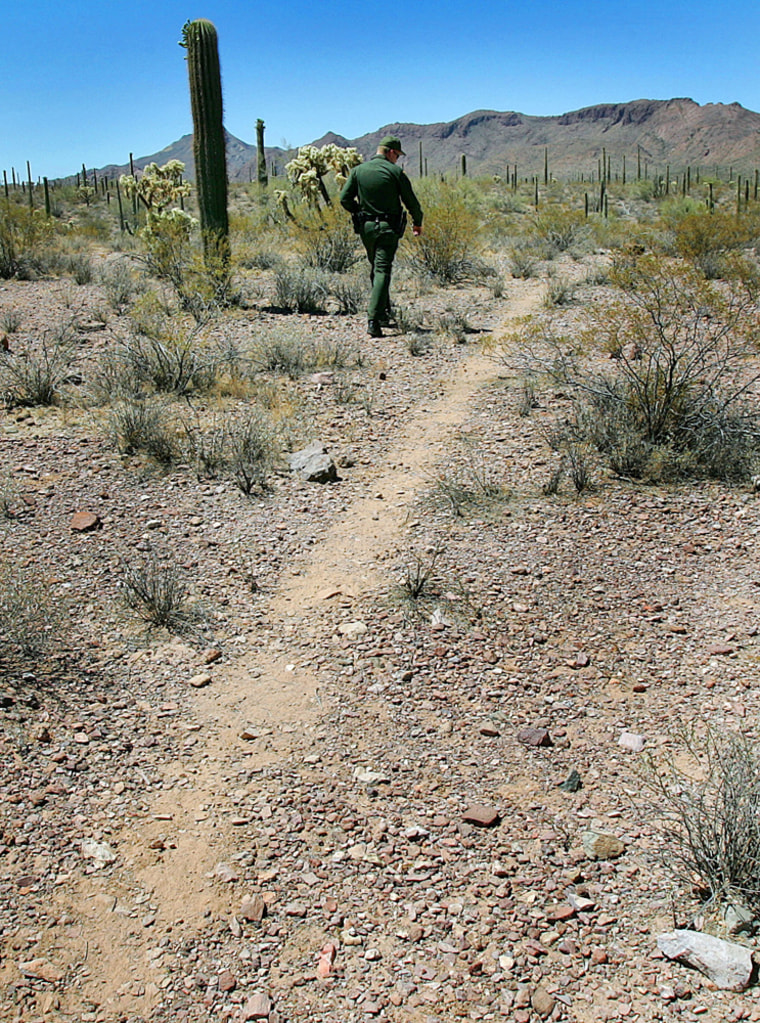Drug smugglers fleeing Mexican police crossed into this desert park and fatally shot a ranger four years ago, prompting officials to build a 30-mile vehicle barrier.
That steel-and-concrete wall stops most cars from speeding in from Mexico. But drug and human traffickers have switched to rural entryways into Arizona.
Thousands of people now cross on foot. They leave piles of trash, build fires, damage the park’s famous cacti and create countless trails through the fragile desert vegetation.
Park workers spend most of their time backing up Border Patrol officers and dealing with border issues.
“This tears my heart out, seeing the impacts on this place,” Organ Pipe superintendent Kathy Billings said as she surveyed a fresh track through coarse sand.
The problems are not just on the border. After the attacks of Sept. 11, 2001, the government added new homeland security responsibilities at national icons such as the Washington Monument, Independence Hall and Mount Rushmore.
Since 2001, the Park Service has received an additional $35 million in annual money for such duties. The government also provided $91 million in one-time dollars for icon parks and $18 million for Organ Pipe’s barrier.
But superintendents say the costs are much higher. Rangers are pulled from other duties to help patrol. Managers at Organ Pipe, for example, spend about $100,000 a year from its maintenance budget to repair the vehicle barrier and an adjoining road.
“We’d like to see the Park Service reimbursed,” said Blake Selzer of the National Parks Conservation Association, an advocacy group. “To truly address this issue, the amount of money is going to have to go up.”
Homeland security, such as increased protections from illegal immigration, is a “a newly identified priority,” said deputy Interior Secretary Lynn Scarlett.
Despite five years of public discussions and congressional hearings about new expenses, the Park Service could not provide The Associated Press with a detailed wish list of budget requests from the parks since Sept. 11, 2001. Nor could the agency provide an itemized tally of how such money has been spent on these new duties.
The only information available was the lump total provided to parks.
An agency spokesman said the details were kept by the individual parks or at the regional level and not in Washington.
“We have management controls and checks and balances with respect to funding of projects and operation expenses,” spokesman David Barna said. “And we trust our employees to do the right thing.”
